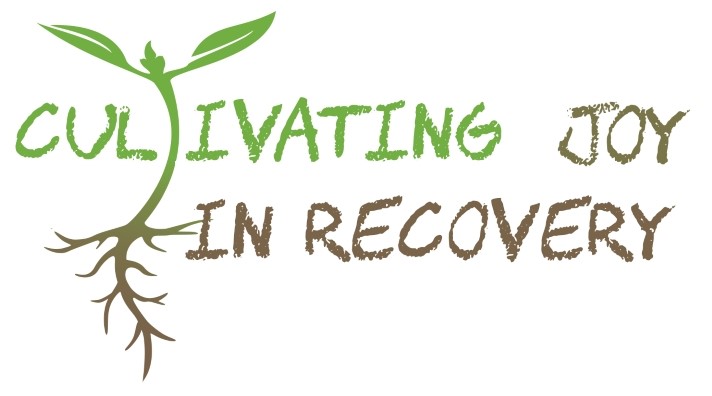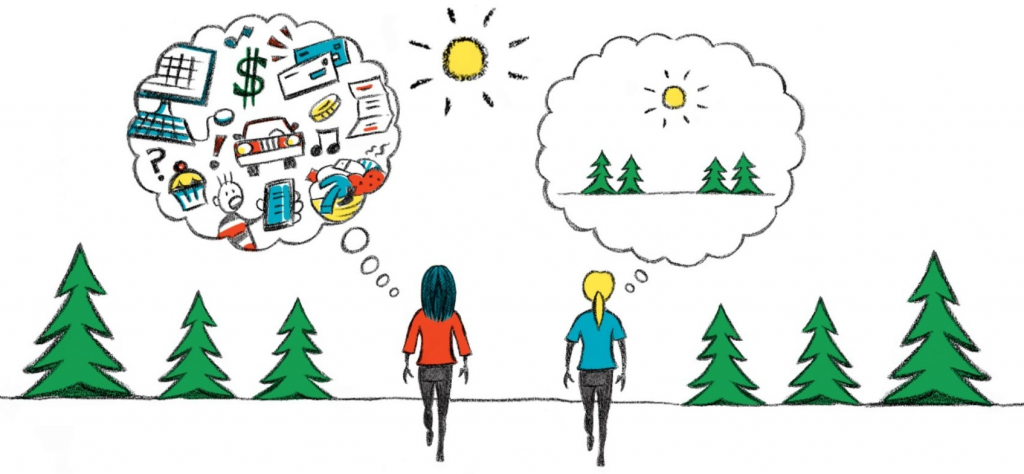Like anyone else, individuals living with Substance Use Disorder (SUD) can be plagued by anxiety, depression, pessimism, hopelessness, and fear. Escaping these may be what led us to using drugs in the first place. Or, these feelings may have resulted from the way we lived when we were still “in the problem”. In recovery, we have the opportunity to experience joy, but it doesn’t come automatically. We have to cultivate it…

- BE MINDFUL
As we look back at the time lost or decisions made, we might be tempted to believe that if only we’d made better choices, if only we had a better job or a better spouse, if only we weren’t up to your eyeballs in debt, we could be happy and content with life.
While it is good to work on healing our life and mending our relationships, joy can be yours even in the face of adversity.
We need not focus on the past and we need not worry about the future. There is a joy and peace that comes from living where we are right now, free of the shadows of the past and future.
 Mind full, or Mindful? |
- BE FRIENDS WITH YOURSELF
Developing SUD can be a manifestation of deep self-loathing. We are used to hating ourselves—if we didn’t say it, our actions demonstrated it. So now that we take away the substance, we have nothing to mask the image we see when we look in the mirror.
It’s time to learn to like yourself. We are created for community, and we find much joy in being with others, but for many of us that starts with liking ourselves and who we are becoming. Each of us is special and unique and we are deserve to feel that way.
Get to know yourself as you would get to know a new friend. Rather than scolding yourself or criticizing, try practicing acceptance, patience and grace.
- BE INVOLVED WITH YOUR COMMUNITY
While it is important to have a working relationship with ourselves, we can’t stop there. In recovery, we come to realize that we are made for community—that life is more than just the daily meeting of our own needs.
Humans are social creatures. Recovery grants us the opportunity to know others and to be known in return. We realize that life is abundantly more joyful when it is shared.
- Meet new people
- Get together with current acquaintances and friends
- Talk to neighbours
- Socialize at community events
- BE REASONABLE WITH YOUR EXPECTATIONS
Rather than keeping a list of all the things going wrong or that aren’t perfect, start to look at what’s going right—even the small things.
While it is good to aim high, we can’t let this jeopardize the joy we could know as we live without the anxiety and anger that can arise from others (or ourselves) failing to meet our (often unrealistic) expectations.
Try lowering your expectations of yourself and others. For many of us, this will cause a noticeable increase in our own peace and contentment.

- BE GRATEFUL
It might sound sappy to go around talking about all of the things we are grateful for, but thankful people are joyful people. Every good thing in our life—our recovery, for example—is a gift. Our mind can only focus on so many things. When we practice focusing on the things for which you are grateful, we have a lot less time to focus on the negative. Suddenly we find our lives filled with joy.
Start a gratitude journal and challenge yourself to write at least three things each day. Think about the good in our lives, and be thankful it is there. In time, we can learn to be thankful for the troubles as well.
- Weekly Gratitude Journal. You still fill it out daily, but it has a whole week on one page. An introductory step in listing things/people you are grateful for.
- Daily Gratitude Journal. This is a more advanced journal, you are encouraged to complete daily. It includes much more ways to list what you are grateful for. May be intimidating for beginners.
- BE CONNECTED WITH YOUR BODY
Our using has often unconnected us from our bodies. We have failed to care for our bodies, failed to honor them, and to listen to them. Our bodies, more than a nagging source of temptation, are a blessing.
Recovery gives us a new lease on physical health. It’s time to see what this body is capable of and how it can bring new joy into life. Joyful movement is vitally important for the individual recovering from SUD or other mental health issues. Yoga, walking, cycling, dancing and weight training can help to heal the body and boost the mood.
Our body is also the most effective way to get into “now”. By being aware of our physicality, we can stop “living in our head” and start living in the moment.
- BE PURPOSEFUL IN YOUR LIFE
We all have a purpose. And we can find the joy and fulfillment in carrying out this purpose or living up to our own values.
How do you find your purpose? How do you bring it about? As we continue to heal physically, mentally, and spiritually, we find more opportunities to discover our calling. Here are a few questions that can help define your calling.
- What makes you feel great about yourself?
- What activities make you lose track of time?
- If you had to teach something, what would you teach?
For a more complete workbook to examine your life purpose, look at the “Discovering Your Life Purpose” handout (based on Think Simple Now post).
- BE A SERVICE TO OTHERS
It might seem unlikely that helping others would fill us with joy and fulfillment, but the helper spirit has the power to work wonders. In recovery, we fuel our own recovery by contributing to the needs of others, especially in our recovery community. Even small-scale service can help to lift your spirits and your mood.
We may find value in volunteering to fill a need in areas we are passionate about, or in areas where we ourselves have been before.
If you are connected to a 12-step group, there are many service opportunities required to keep the group working. If you are interested in helping others in recovery, SRWC has a thorough volunteer training program for individuals interested in being a Recovery Coach.
- BE NOSTALGIC
Think about the things we used to enjoy.
- What sports did you play?
- What cultural events did you attend?
- What art or craft did you spend time with?
- What were our favourite hangouts?
We have been given a new lease on life; a chance to live and thrive anew. We could take up some of those old activities and see what we still enjoy doing and even discover new ways to find our joy.





